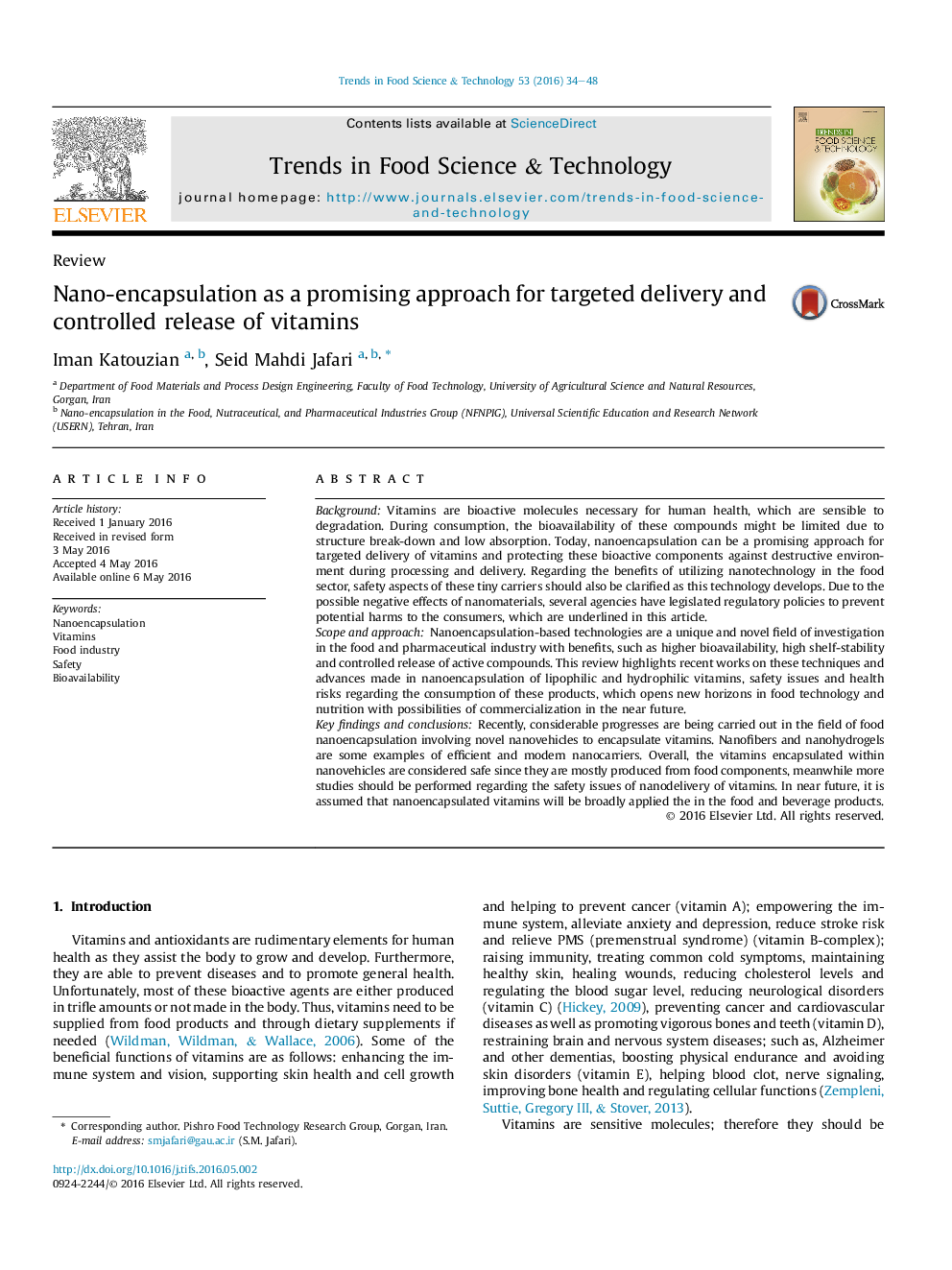| کد مقاله | کد نشریه | سال انتشار | مقاله انگلیسی | نسخه تمام متن |
|---|---|---|---|---|
| 2098437 | 1546125 | 2016 | 15 صفحه PDF | دانلود رایگان |
• Importance of vitamin nanoencapsulation is compared to microencapsulation.
• Microencapsulation techniques applied in vitamins are discussed.
• Nanoencapsulation methods and nanocarriers applied in vitamins are reviewed.
• Factors influencing the release rate of vitamins are highlighted.
• Safety and risk evaluation issues are analyzed.
BackgroundVitamins are bioactive molecules necessary for human health, which are sensible to degradation. During consumption, the bioavailability of these compounds might be limited due to structure break-down and low absorption. Today, nanoencapsulation can be a promising approach for targeted delivery of vitamins and protecting these bioactive components against destructive environment during processing and delivery. Regarding the benefits of utilizing nanotechnology in the food sector, safety aspects of these tiny carriers should also be clarified as this technology develops. Due to the possible negative effects of nanomaterials, several agencies have legislated regulatory policies to prevent potential harms to the consumers, which are underlined in this article.Scope and approachNanoencapsulation-based technologies are a unique and novel field of investigation in the food and pharmaceutical industry with benefits, such as higher bioavailability, high shelf-stability and controlled release of active compounds. This review highlights recent works on these techniques and advances made in nanoencapsulation of lipophilic and hydrophilic vitamins, safety issues and health risks regarding the consumption of these products, which opens new horizons in food technology and nutrition with possibilities of commercialization in the near future.Key findings and conclusionsRecently, considerable progresses are being carried out in the field of food nanoencapsulation involving novel nanovehicles to encapsulate vitamins. Nanofibers and nanohydrogels are some examples of efficient and modern nanocarriers. Overall, the vitamins encapsulated within nanovehicles are considered safe since they are mostly produced from food components, meanwhile more studies should be performed regarding the safety issues of nanodelivery of vitamins. In near future, it is assumed that nanoencapsulated vitamins will be broadly applied the in the food and beverage products.
Figure optionsDownload as PowerPoint slide
Journal: Trends in Food Science & Technology - Volume 53, July 2016, Pages 34–48
